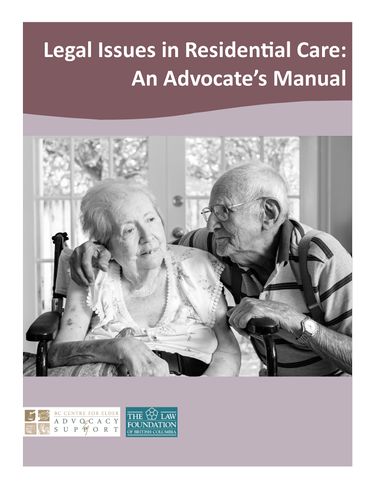 "The BC Centre for Elder Advocacy and Support (BCCEAS) is proud to present our Clicklaw Wikibook, Legal Issues in Residential Care: An Advocate’s Manual, an online guide to legal issues with regard to residential care in British Columbia, and the processes and solutions needed to deal with them. This e-book is primarily meant for legal and health care professionals working to support people in residential care, as well as the BCCEAS legal team."
"The BC Centre for Elder Advocacy and Support (BCCEAS) is proud to present our Clicklaw Wikibook, Legal Issues in Residential Care: An Advocate’s Manual, an online guide to legal issues with regard to residential care in British Columbia, and the processes and solutions needed to deal with them. This e-book is primarily meant for legal and health care professionals working to support people in residential care, as well as the BCCEAS legal team."
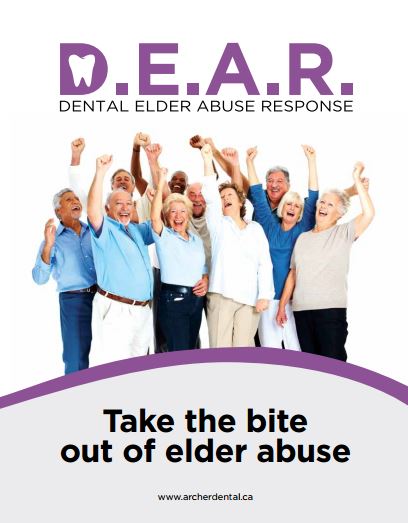
For more information, please see the National Initiative for the Care of the Elderly or the Canadian Centre for Elder Law.
To download all materials for free, please see Archer Dental.
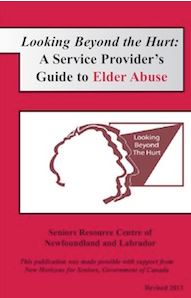
Source: Newfoundland and Labrador Network for the Prevention of Elder Abuse
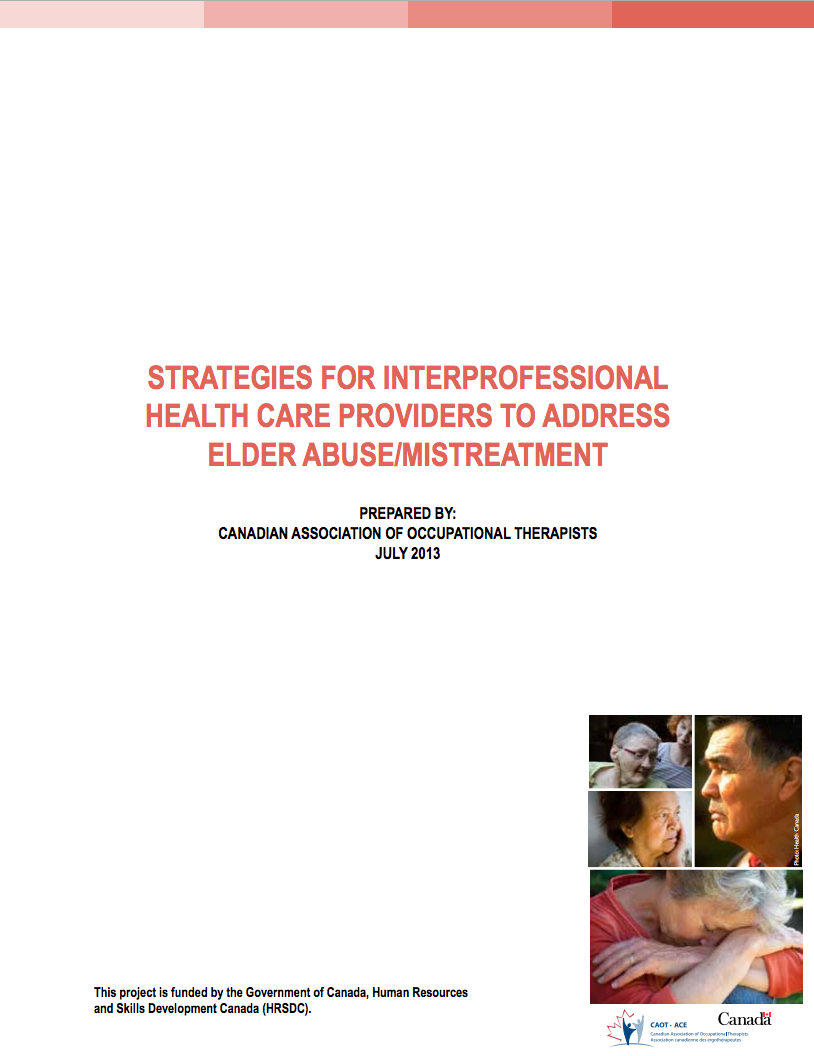 "Because they are frequently in close contact with clients and families, health care providers are often in a position to be entrusted with information about abuse/mistreatment of elders. This inter-professional project started with, occupational therapists who felt they needed more information on their responsibilities in such instances and on potential strategies for intervention and came to the Canadian Association of Occupational Therapists (CAOT), their national professional association for advice.Building on the Strategies for occupational therapists to address elder abuse/mistreatment, this project aims to develop a curriculum for health care providers to learn about indicators of elder abuse, prevention, assessment and intervention protocols, relevant legislation and available resources. The curriculum will be delivered in face- face workshops (with teleconference/video link option for those remote) in various regions across Canada. The expected outcome of the training workshops is to have participants knowledgeable and skilled to deliver interdisciplinary educational sessions in their regions. CAOT is proud to be a leader in building capacity for managing situations of elder abuse and to share this information with other health care professionals across Canada."
"Because they are frequently in close contact with clients and families, health care providers are often in a position to be entrusted with information about abuse/mistreatment of elders. This inter-professional project started with, occupational therapists who felt they needed more information on their responsibilities in such instances and on potential strategies for intervention and came to the Canadian Association of Occupational Therapists (CAOT), their national professional association for advice.Building on the Strategies for occupational therapists to address elder abuse/mistreatment, this project aims to develop a curriculum for health care providers to learn about indicators of elder abuse, prevention, assessment and intervention protocols, relevant legislation and available resources. The curriculum will be delivered in face- face workshops (with teleconference/video link option for those remote) in various regions across Canada. The expected outcome of the training workshops is to have participants knowledgeable and skilled to deliver interdisciplinary educational sessions in their regions. CAOT is proud to be a leader in building capacity for managing situations of elder abuse and to share this information with other health care professionals across Canada."
Source: Canadian Association of Occupational Therapists
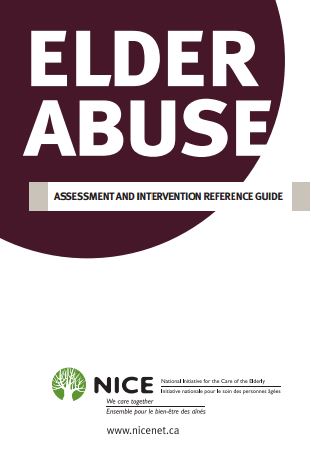
Page 25 of 31

















